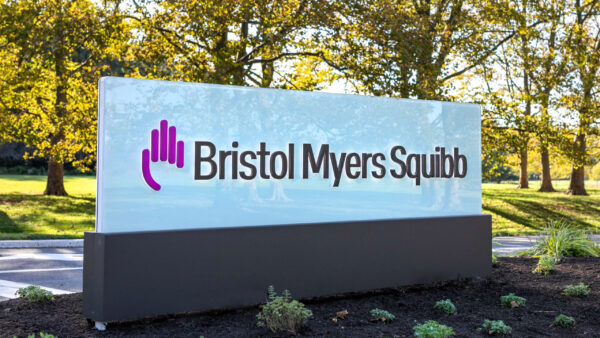BMS-986278 succeeds in phase 2 idiopathic pulmonary fibrosis trial, says Bristol Myers Squibb
Bristol Myers Squibb (BMS) said that BMS-986278 has succeeded in lowering the rate of lung function decline in idiopathic pulmonary fibrosis patients in a phase 2 clinical trial.
BMS-986278, which is an oral, lysophosphatidic acid receptor 1 (LPA1) antagonist, is now expected to advance into phase 3 clinical development in idiopathic pulmonary fibrosis.
The mid-stage clinical trial demonstrated that administering 60mg of BMS-986278 twice daily over 26 weeks led to a significant reduction in the rate of decline in percent predicted forced vital capacity (ppFVC) compared to a placebo.
Specifically, the decline in ppFVC was reduced by 62% with BMS-986278, while the 30mg dose did not show effectiveness compared to the placebo.
During the phase 2 clinical trial in idiopathic pulmonary fibrosis, patients were randomly assigned to receive either a placebo, 30mg, or 60mg of BMS-986278 twice daily for 26 weeks.

Bristol Myers Squibb’s BMS-986278 succeeds in phase 2 idiopathic pulmonary fibrosis trial. Photo courtesy of Bristol-Myers Squibb Company.
Approximately two-thirds of the patients were already undergoing antifibrotic therapy. In cases where patients met specific blood pressure reduction criteria, the dosage was reduced to 10mg of BMS-986278 or a matching placebo twice daily.
The need for dose reduction based on blood pressure criteria affected 5% of placebo patients, 8% of those receiving the 30mg dose, and 6% of those receiving the 60mg dose.
The primary endpoint of the trial was the rate of change in ppFVC from baseline throughout the 26-week period. The analysis showed that treatment with 60mg of BMS-986278 resulted in a relative reduction of 62% in the rate of change in ppFVC compared to the placebo in the while-on-treatment analysis.
Additionally, in the treatment policy analysis, there was a 54% reduction in the rate of change in ppFVC compared to the placebo.
A Bayesian analysis indicated a probability greater than 95% that the 60mg dose of BMS-986278 was superior to the placebo in reducing the rate of decline in ppFVC over the 26-week period, as assessed by both the while-on-treatment and treatment policy estimands.
Samit Hirawat — Bristol Myers Squibb chief medical officer said: “The in-house development of BMS-986278 and progress of our pulmonary fibrosis program are a direct result of our industry-leading drug discovery and development capabilities, underscoring our expertise in disease biology and medicinal chemistry.
“These Phase 2 data give us the confidence to initiate our global Phase 3 clinical trial program where we will continue exploring BMS-986278 as a potentially new and meaningful therapeutic option for people with pulmonary fibrosis.”
Discover more from Business-News-Today.com
Subscribe to get the latest posts sent to your email.

